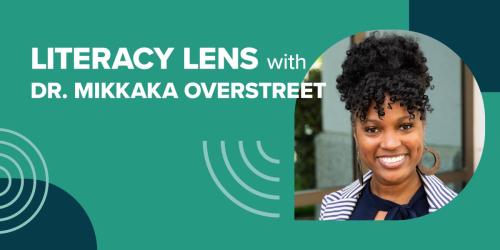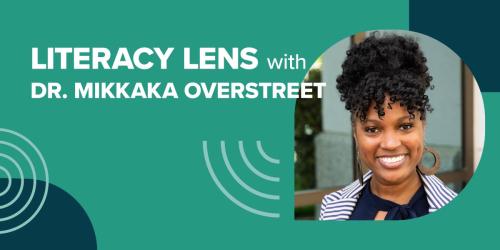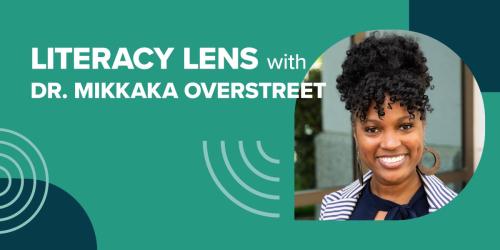Literacy Lens: The Impact of Literacy Leadership
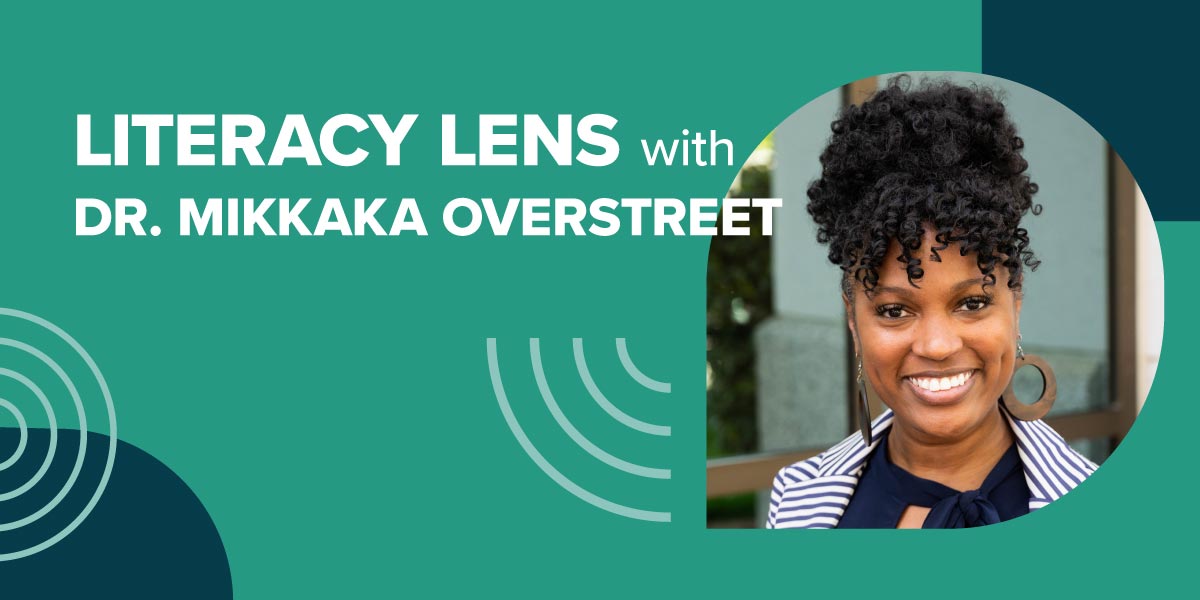
As we approach the end of another school year, it’s natural to ponder our impact and influence. Have our efforts been effective? What strategies, programs, curricula, or other initiatives did we try this year? What impact did they have on our students’ learning? How do we know?
I started my career as a second-grade teacher in Louisville, Kentucky. It was an amazing and challenging experience that I wouldn’t trade for the world. I used Fountas and Pinnell and Rigby Guided Reading and Everyday Math, and so on, because that’s what they used in my school. Often, I noticed when things weren’t working and adjusted my implementation accordingly, but I rarely thought about the bigger picture. Were the programs effective for some students and not others? Why were we using these specific materials? What was our vision for literacy?
When I started a position at the Kentucky Department of Education, it was bittersweet. I knew that I would miss being in the classroom, seeing my impact on students in real time every day. But this was offset by the opportunity to have an impact on teachers, and thereby students, all over the state. Later, I became a literacy professor, teaching preservice and practicing teachers who would theoretically impact students all over the country.
In both the state and university roles, I worked with educators without ever knowing how well the strategies I shared would be implemented. Often, I lamented that the learning they’d done with me could very likely clash with existing practices in their schools and districts. I had no milestones or indicators to determine whether my efforts truly improved outcomes for children. Without any clearly defined indicators of success beyond academic grades, I didn’t even know if my students (the teachers) were truly benefiting from my courses.
Now, at Education Northwest, I am discovering a new avenue for impact: investing in literacy leadership. As I mentioned in a previous post, recent research from the Wallace Foundation points to the central importance of effective leadership. In the study, replacing an ineffective principal with an effective one had a greater impact on student reading achievement than more than half of the interventions typically used. Improving literacy outcomes for all students starts with consistently implementing evidence-based practices, and implementation requires strong leadership.
Spotlight: Education Northwest’s Literacy Leadership Line
At Education Northwest, we use our expertise in implementation science to support school and district leaders in improving literacy practices. A 2015 study of implementation strategies defined implementation science as the “methods or techniques used to enhance the adoption, implementation, and sustainability” of an initiative. In education, we too often adopt new programs and practices without the necessary support to implement and sustain them.
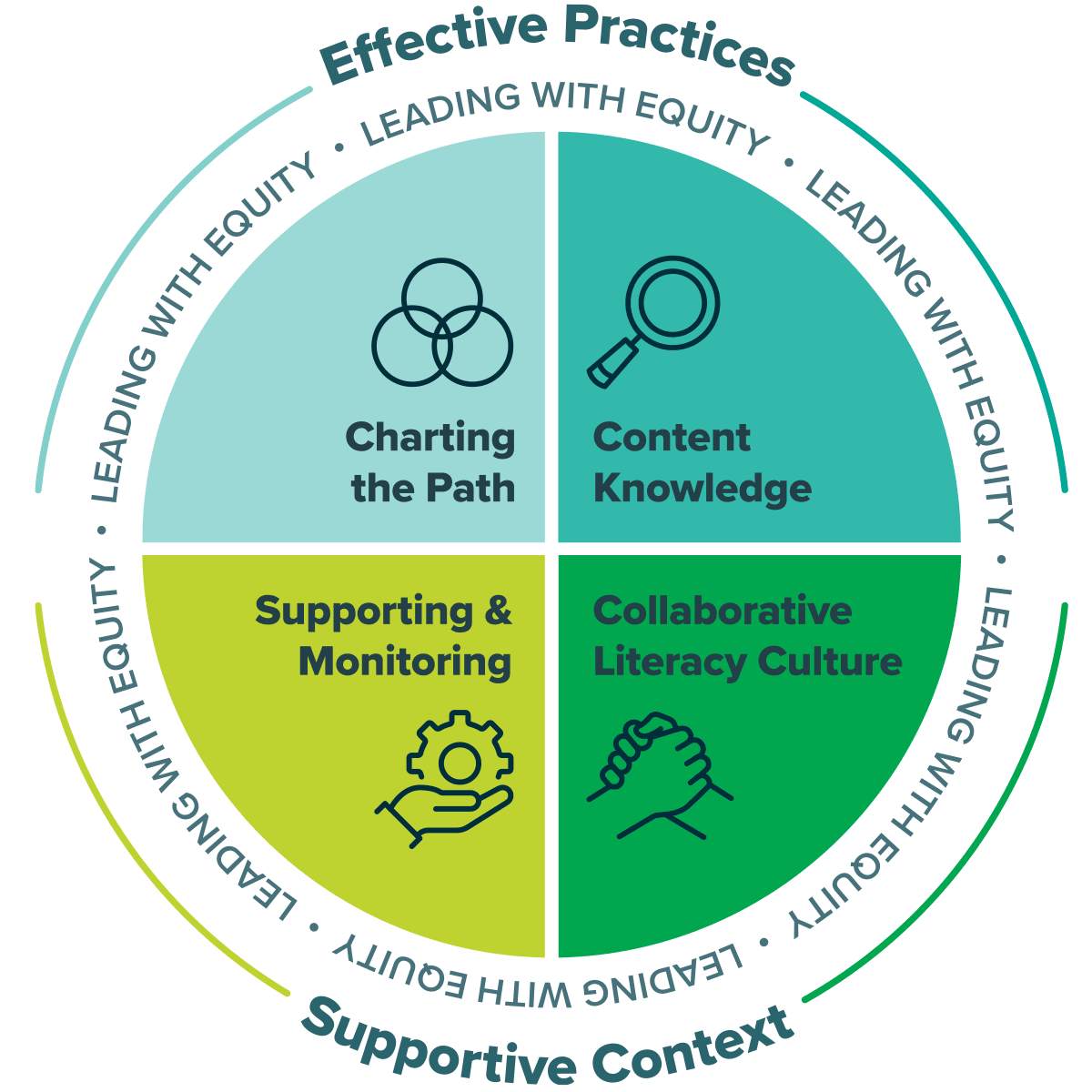
For instance, we once worked with a high school that had a chronic history of low performance. We helped them conduct a needs assessment to understand the root causes of those struggles. Part of the assessment required them to list every initiative that had been implemented in the school in the last five years and then check a box as to whether—in their view—it had been successful or had failed.
The participants listed more than 300 initiatives, from professional learning communities to Positive Behavioral Interventions and Supports to specific math and reading strategies and student intervention programs. In the views of both teachers and administrators, they had ALL failed! Some of these programs are high-quality and evidence based. How could they all have failed? Spoiler alert: The failure wasn’t due to the programs or initiatives themselves; it was due to a lack of leadership and a lack of implementation planning and support.
That’s where our Framework for Literacy Leadership Development comes in. It’s a tool to help leaders and their teams think through all the steps of implementing a robust literacy program. Our framework is divided into four parts (see figure).
Charting the Path
Launching an initiative without engaging all partners in a shared vision will lead to a lack of buy-in and commitment. The process of developing a common literacy vision, on the other hand, helps foster a sense of shared ownership and is more likely to result in effective and sustained implementation. Effective leaders engage staff members, students, families, and community partners and facilitate the development, articulation, implementation, and stewardship of a shared, equitable vision for literacy. You are not doing this alone; part of the process is engaging the right team.
Content Knowledge
To be an effective literacy leader, the principal must be viewed by teachers as a model of reflective, lifelong learning and as knowledgeable in the area of literacy. The expectation is not that you become a literacy expert, but that you understand what practices should and should not be present in a classroom. Teachers are more likely to implement effective literacy practices when they have the support of a principal who can talk about those practices with clarity and detail. And your ability to support better literacy outcomes is directly tied to your knowledge of effective literacy instruction.
Collaborative Literacy Culture
In a collaborative literacy culture, all staff members see themselves as responsible for meeting the literacy goals of all students. Lack of sustained success with literacy initiatives is less about what we know and more about how we apply what we know. No buy-in means no application. Leaders who understand how to effectively lead organizational change are in a better position to support staff members who may be resistant to adopting new practices.
Supporting and Monitoring
A wise colleague once told me, “We cannot expect what we don’t inspect.” By “inspecting” she meant monitoring the learning environment in order to better support it. For a literacy plan to succeed, we must create clear and consistent structures for teachers to be able to translate their knowledge of the science of reading into practice. This means providing explicit implementation guidance and frequent feedback to teachers to ensure their students have access to high-quality, consistent, evidence-based literacy core instruction as well as interventions when these are needed. This also includes making decisions about how much time should be allocated for the literacy block, advocating for relevant curriculum and materials, and providing staff members with access to appropriate professional development opportunities.
Call to Action: Invest in Literacy Leadership
Leaders need professional learning that is tailored, timely, and research based. A 2022 report from Learning Policy Institute and the Wallace Foundation found that effective professional learning for principals includes access to evidence-based content, coaching, and communities of practice. All three elements are included in our professional learning model.
Read about our literacy service line to learn more about our work supporting the implementation of evidence-based literacy practices. You will find information about our approach to professional learning, as well as a more in-depth look at our Framework for Literacy Leadership Development. The additional resources below may also be helpful as you continue your literacy leadership journey.
Literacy Lens: Literacy Leadership for Positive Change
One of my previous blog posts examined the crucial role school leaders play in supporting the implementation of evidence-based literacy practices.
